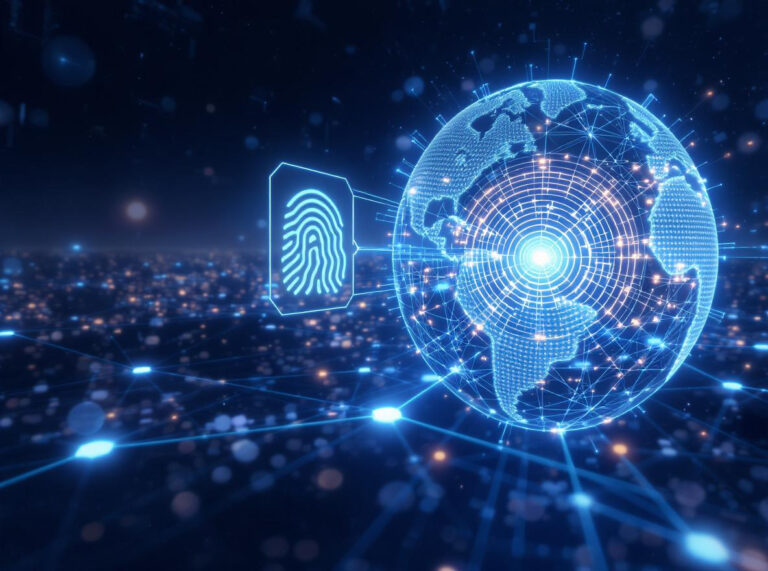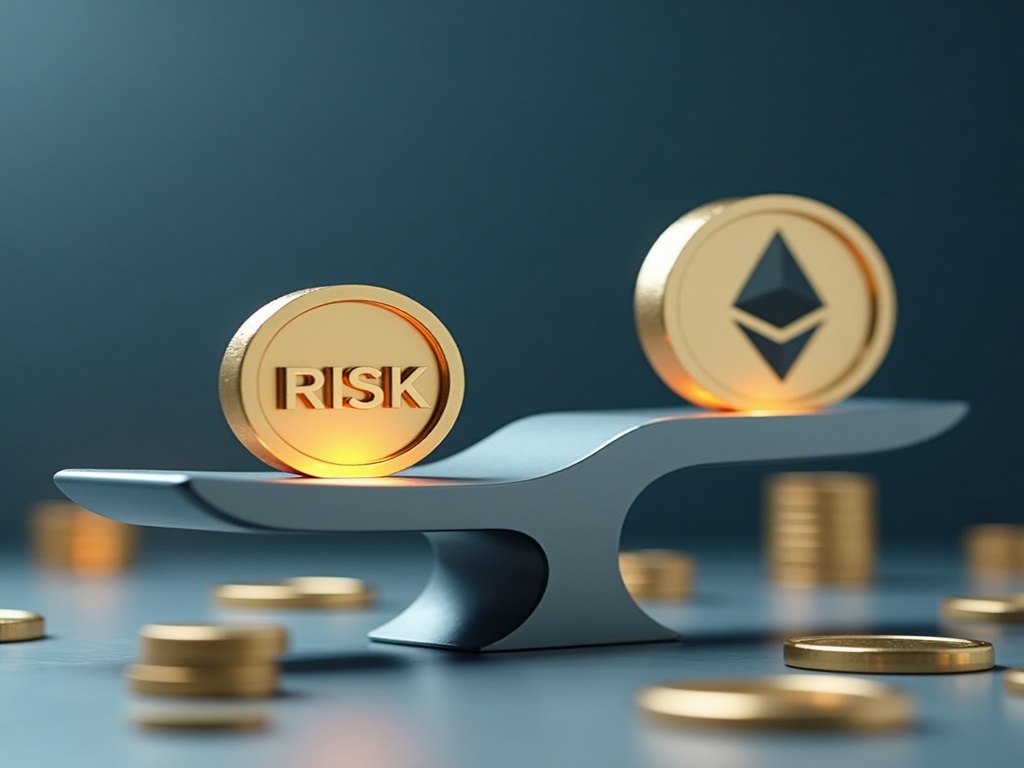
World ID Verification - Preventing Debt Abuse with Digital Identity
The biggest problems with unsecured loans are fraud and multiple account creation. Devyn’s solution is World ID, an identity platform created by OpenAI CEO Sam Altman.
The tool uses biometric authentication and decentralized identifiers to ensure that each borrower is unique. In other words, World ID prevents people from opening multiple accounts to borrow money and repeatedly defaulting.
The company offers crypto loans of as little as $1,000 USDC, specifically for areas outside the US where banking infrastructure is weak or inaccessible.
What Devin’s founders say about their mission:
Founder Diego Estevez explained to the Financial Times:
“We’re lending to ordinary people – high school teachers, fruit vendors… basically anyone with access to the internet can now access our funds. It’s a modern form of microfinance.”
By reducing the collateral Barrier, Davin hopes to empower small scale borrowers who have historically been overlooked by banks.
Loan Structure: High Interest, High Risk

Unsecured lending in crypto comes with significant risk, and Devyn has built a model to balance those risks.
Key loan terms:
• Loan size: Less than $1,000 in USDC stablecoin
• Interest rate: Between 20% and 30%
• Default rate: Early data shows a default rate of about 40% on first-time loans
Additional incentive: Borrowers also receive free World tokens, which can be partially redeemed.
Estevez notes:
“Higher interest rates offset the losses caused by higher default rates.”
While lenders may find this approach expensive, it also reflects the cost of servicing customers who have limited financial history.
A New Investment Opportunity for Everyday Investors

Interestingly, the capital for these loans doesn’t just come from large institutions. Retail investors – everyday people – are also financing these higher-risk, higher-return loans.
“Anyone can provide liquidity,” says Estevez.
“We’ve created a system where, when you factor in the default rates and the interest rates, the lenders always make a profit.”
This means that Devyn Research allows regular individuals to act as micro-lenders, making a profit from the interest payments while helping to expand access to credit globally.
Competitors in the Unsecured Crypto Lending Space

Devine Research’s rise is part of a larger trend in unsecured crypto lending, fueled by both a recovering crypto market and political support for digital assets.
Other startups are also innovating:
3Jane – Unsecured loans with “proof of culture”
- Recently raised $5.2 million from Paradigm.
- Provides unsecured loans on the Ethereum blockchain.
- Requires some form of “proof of culture,” such as income documents or proof of assets
- Plans to use AI agents to automate loan rules, lower interest rates, and increase payment enforcement
- Defaulted loans are sold to U.S.-based debt collectors
Wildcat – Custom Loans for Professional Traders
- Targets market makers and trading firms.
- Offers custom unsecured loans with favorable terms.
- Advisor Evgeny Gaevoy notes:
“If a loan defaults, lenders work directly with each other to recover funds.”
This peer-to-peer enforcement mechanism creates a different kind of safety net than institutional oversight.
The Institutional Interest in Crypto Lending
Even major banks are now showing curiosity about crypto-backed lending.
Recent reports have revealed that JPMorgan Chase is considering entering the crypto lending market, allowing customers to borrow against major digital assets such as Bitcoin (BTC) and Ethereum (ETH).
This type of institutional involvement suggests that the lending sector could become a key part of the crypto ecosystem as regulation and infrastructure mature.
Lessons from 2022: The Risks Remain Real

While unsecured crypto lending is on the rise, the shadow of the 2022 lending crash still lingers. This year, several prominent firms imploded:
• Celsius: CEO Alex Mashinsky sentenced to 12 years in prison for fraud.
• Genesis: Agreed to a $2 billion settlement after bankruptcy.
These failures highlight the dangers of lending without strong risk management, especially in a volatile market like crypto.
Why Devyn’s Approach Could Be a Game Changer
The combination of WorldID verification and microfinance-inspired lending positions Devin as a unique player in the DeFi lending space. By focusing on digital identity and transparency, the company can help:
- Reduce fraud.
- Expand financial access for the unbanked.
- Provide new opportunities for small-scale investors.
- Encourage responsible borrowing.
However, high interest rates and significant default rates mean it is still a high-risk experience.
Final Thoughts

Unsecured crypto loans represent a new frontier for blockchain finance. Platforms like Devine Research, powered by Sam Altman’s WorldID, are experimenting with ways to make lending more inclusive without relying on traditional banks.
For borrowers in unsecured markets, this could mean access to funds that were never available before. For lenders, it offers the opportunity to earn a return, albeit with significant risk.
As more companies like 3Jane and Wildcat enter the space, and as major institutions like JPMorgan Chase explore crypto lending, 2025 could mark the rise of a new decentralized credit economy.
Tags:Blockchain Microfinance, DeFi Lending, Crypto Loans, Unsecured Loans, USDC, Crypto Investment, Digital Identity, World ID, Sam Altman, Devyn Research.
#Bitcoin #Blockchain #Bitcoin #Regulation #Adoption #Loans #Lending #Worldcoin #Housing loans #JPMorgan Chase #Celsius
